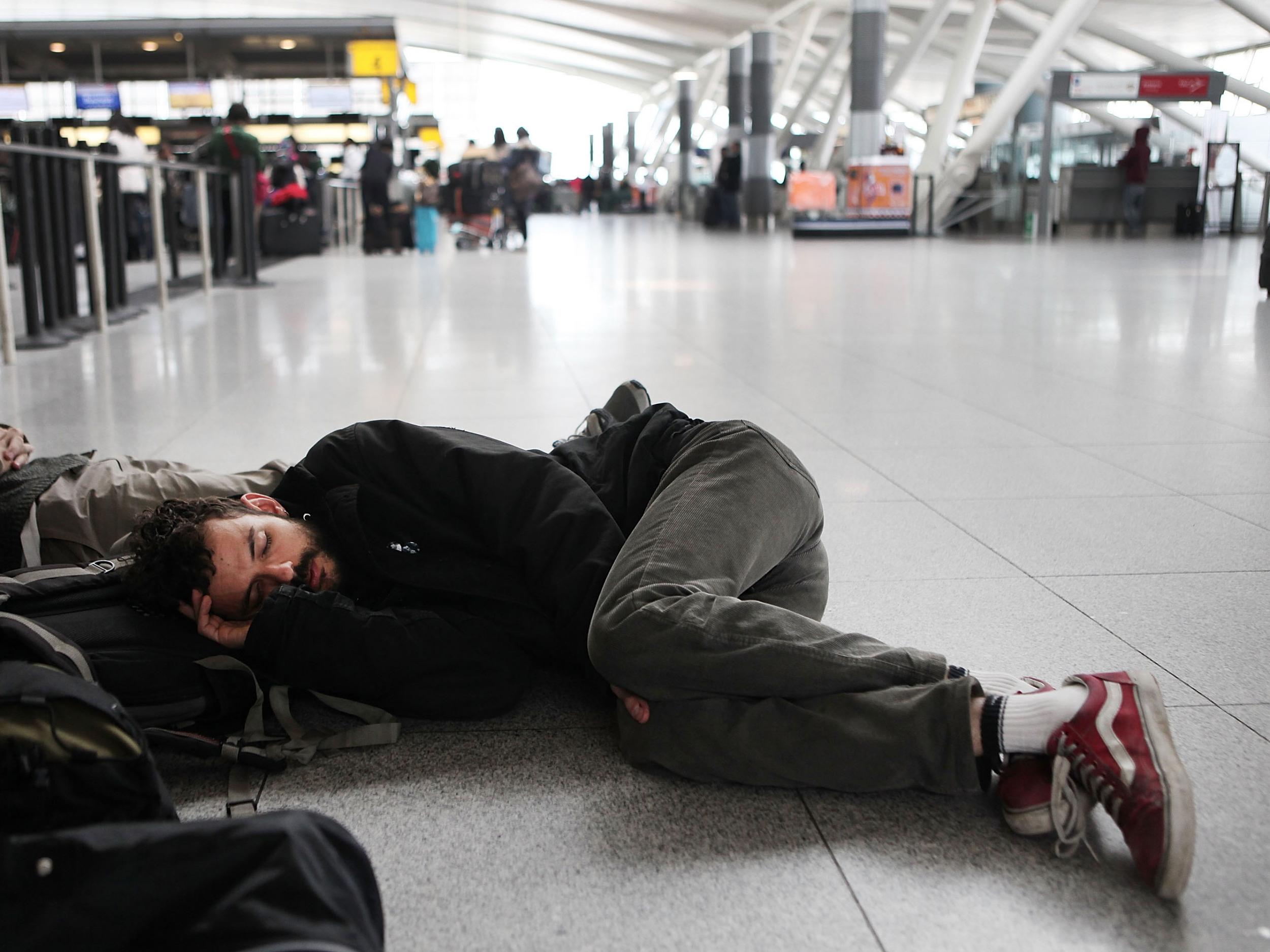The reason why you can't sleep when staying away from home explained by science
The so-called 'first night effect' has been recognised before, but scientists have now explained why it happens

After a long journey you arrive at the hotel and vow that the holiday of a lifetime will begin after a good night’s sleep. Except the next morning, you wake to find you are just as tired as when you arrived.
The so-called “first-night effect” has long been recognised as a phenomenon by sleep researchers but a new study appears to have finally explained why people tend to sleep badly when staying somewhere new.
The reason, they believe, is that one half of the brain keeps a “night watch” and sleeps only lightly in case the new venue turns out to be unsafe.
The researchers used a combination of three different brain scans, including MRI, to monitor people as they slept.
They found that on the first night, people tended to have more difficulty in getting to sleep in the first place, but also the left side of the brain had “reduced sleep depth”, the scientists wrote in a paper in Current Biology.
They also recorded an “enhanced evoked brain response” to unusual sounds and other “deviant external stimuli”.
In the paper, the researchers conclude: “The first-night effect is a manifestation of one hemisphere being more vigilant than the other as a night watch to monitor unfamiliar surroundings during sleep.
“[The] lines of evidence are in accord with the hypothesis that troubled sleep in an unfamiliar environment is an act for survival over an unfamiliar and potentially dangerous environment, by keeping one hemisphere partially more vigilant than the other hemisphere as a night watch, which wakes the sleeper up when unfamiliar external signals are detected.”
Professor Yuka Sasaki, an expert in cognitive linguistic and psychological sciences at Brown University in the US and lead author of the paper, said this survival technique appears to be shared with other animals.
“We know that marine animals and some birds show uni-hemispheric sleep, one awake and the other asleep,” she said.
And while the effect does not appear to be as pronounced in humans, Professor Sasaki said their study suggested “our brains may have a miniature system of what whales and dolphins have”.
The researchers are now trying to temporarily knock out the “awake” part of the brain by using magnetic stimulation to see whether this helps people to sleep.
“Human's brains are very flexible,” Professor Sasaki said. “Thus, people who often are in new places may not necessarily have poor sleep on a regular basis.”
The first-night effect is so significant that researchers studying sleep in a clinic normally have to allow their subjects to have an “adaptation night” before beginning their work.
The researchers cautioned that their study measured one sleep phase and the right side of the brain might take over duties as the “night watch” later one. “It is possible that that the surveillance hemisphere may alternate,” Professor Sasaki said.
She suggested people might be able to reduce the effect by bringing their own pillow with them when sleeping away from home.
“In Japan they say, ‘if you change your pillow, you can’t sleep’,” she said. “You don't sleep very well in a new place. We all know about it.”
Join our commenting forum
Join thought-provoking conversations, follow other Independent readers and see their replies
Comments
Bookmark popover
Removed from bookmarks